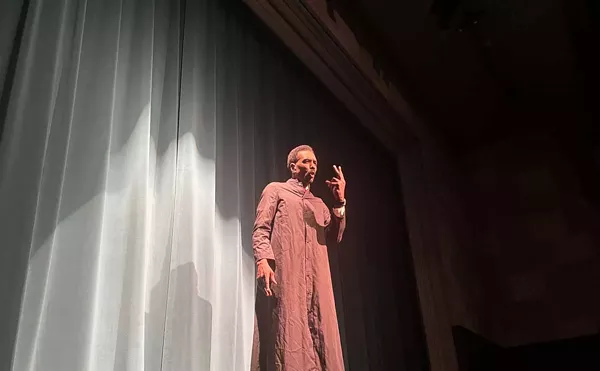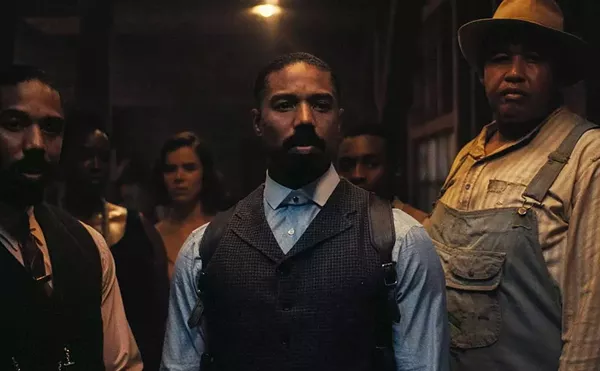
Audio By Carbonatix
[
{
"name": "GPT - Leaderboard - Inline - Content",
"component": "35519556",
"insertPoint": "5th",
"startingPoint": "3",
"requiredCountToDisplay": "3",
"maxInsertions": 100,
"adList": [
{
"adPreset": "LeaderboardInline"
}
]
}
]
Brooding musician Nick Cave’s second stab at screenwriting is a bloody, sun-stroked Western with all the yippee-ki-yay sucked right out of it. The setting is the 19th century Australian outback, a small slice of hell on Earth, where British colonists, lawmen and indigenous people are never more than a shotgun blast or two away from anarchy. “I will civilize this place,” mutters stout and determined Capt. Stanley (Ray Winstone), the beat cop of the outback. Civility will surely be established, but the cost, it’s obvious, will be measured in blood, and much of it Aboriginal blood.
Cave, as a songwriter, loves misery’s company, and his screenplay is likewise steeped in sorrow, loneliness and an inexhaustible supply of despair. He’s paired with director John Hillcoat, who also helmed Cave’s 1988 movie, Ghosts ... of the Civil Dead.
The sound supporting cast includes Guy Pearce, David Wenham and John Hurt — but unlike the villains and heroes in traditional Westerns, the good guys and bad guys in The Proposition aren’t clearly drawn. It’s not as simple as black horses, white horses and lawmen’s badges; appearances mean nothing. Outlaws, townspeople, natives and lawmen — all sides spill blood in equal measure, and operate with questionable morality at best. The universal losers, however, are the Aborigines, who are caught in the crossfire, no matter which side they choose. Then there’s the ruthless Burns gang, Irish transplants who have hidden out in remote caves, blamed for unthinkable crimes — but the Aborigines don’t want the gang there, and bounty hunters are out for their Irish heads. So, we’ve got a terrorist group hiding out in caves, a public crying for payback, and a government operating above the law to get that payback — oh, Nick, you sly dog, are you trying to tell us something?
Cave and Hillcoat have created a political allegory, a morality play and a harsh but riveting drama. The Proposition is a blood-splattered and perfectly complex epic. See this one on the big screen, where you can best appreciate the beauty of the dusty desolation, and become enveloped in Cave’s haunting score.
Clare Pfeiffer Ramsey writes about film for Metro Times. Send comments to letters@metrotimes.com.





